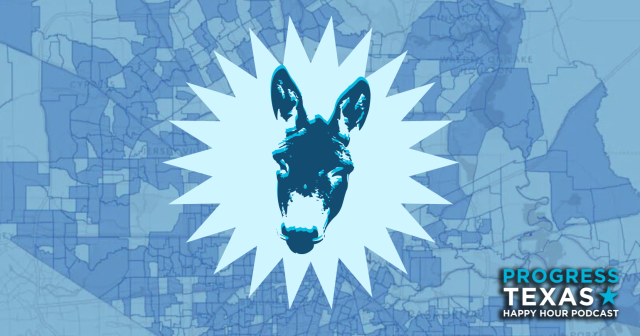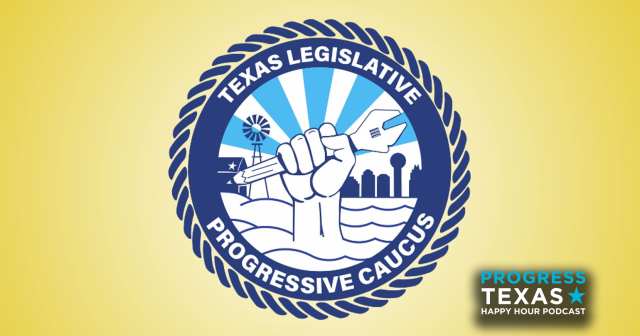Department of State Ignores Keystone XL Pipeline Risks
Citizens recently gathered in Port Arthur and Austin at two Department of State hearings to voice concerns about the controversial new $7 billion, 1,700 mile long TransCanada Keystone XL pipeline. The proposed pipeline, which would pump billions of gallons of tar sands from pristine boreal forest in Alberta to Port Arthur, could potentially bring 13,000 jobs, $2.3 billion in spending, $48 million in tax revenues, and $1.9 billion in gross state product to Texas.
However, the pipeline also poses severe environmental threats that were undermined or ignored altogether in a recent Department of State Federal Environmental Impact Study. The study concluded the pipeline would have “limited adverse environmental impacts”.
Actually, those impacts would be quite substantial.
The crude product comes from bitumen, a material that has the consistency of asphalt that is many times more toxic and acidic than Texas crude oil. To transport bitumen, it must be diluted and moved along a pipeline at high pressures, which greatly increase the risks of leaks. Compounding the problem is the fact that TransCanada has refused to divulge the dilutents it will be using.
Texas has a very large direct interest in the pipeline. Jobs and revenues aside, the pipeline passes through 373 miles of Texas and 18 counties. The pipeline also passes through the Carrizo-Wilcox aquifer, which supplies 10-12 million Texans in sixty counties (including supplemental use in Dallas and Fort Worth) with water. An oil spill in this aquifer could potentially eliminate its safety for domestic and agricultural use. This is bad news for a state suffering the worst drought since they started keeping track 115 years ago. In addition, constructing the pipeline would require 86 million gallons of water for hydrostatic testing and drought control.
These high-pressure pipelines aren’t exactly spill-proof either. The current Keystone pipeline has already had 14 spills since its operations began in June, 2010. According to a recent New York Times article:
Since 1990, more than 5,600 incidents were reported involving land-based hazardous liquid pipelines, releasing a total of more than 110 million gallons of mostly crude and petroleum products, according to analysis of federal data. The pipeline safety agency considered more than half — at least 100 spills each year — to be “significant,” meaning they caused a fire, serious injury or fatality or released at least 2,100 gallons, among other factors.
Source: New York Times
The FEIS also failed to address the issue of wildfires on the pipeline, some of which have actually run directly through the pipeline’s proposed East Texas route. A raging Texas wildfire burning through a leaking high-pressure, highly-flammable 1,700 mile long petroleum pipeline- need I say any more?
James Hansen, the NASA scientist who introduced the concept of human-induced global warming in 1981 has also come out against the Keystone Pipeline, saying it would be “game over” for climate change. He had this to say in a recent essay:
The U.S. Department of State seems likely to approve a huge pipeline, known as Keystone XL to carry tar sands oil (about 830,000 barrels per day) to Texas refineries unless sufficient objections are raised. The scientific community needs to get involved in this fray now. If this project gains approval, it will become exceedingly difficult to control the tar sands monster. The environmental impacts of tar sands development include: irreversible effects on biodiversity and the natural environment, reduced water quality, destruction of fragile pristine Boreal Forest and associated wetlands, aquatic and watershed mismanagement, habitat fragmentation, habitat loss, disruption to life cycles of endemic wildlife particularly bird and Caribou migration, fish deformities and negative impacts on the human health in downstream communities. Although there are multiple objections to tar sands development and the pipeline, including destruction of the environment in Canada, and the likelihood of spills along the pipeline’s pathway, such objections, by themselves, are very unlikely to stop the project.
Source: ThinkProgress
The DOS seems willing to turn a blind eye to the environmental threats associated with building the pipeline.. The economic gains from building the pipeline will be offset by the agricultural and healthcare costs caused by tar sands pollution. It is a clear step back for bone-dry Texas to improve our climate, air quality, or fossil fuel dependency.
DONATE
Your donation supports our media and helps us keep it free of ads and paywalls.








